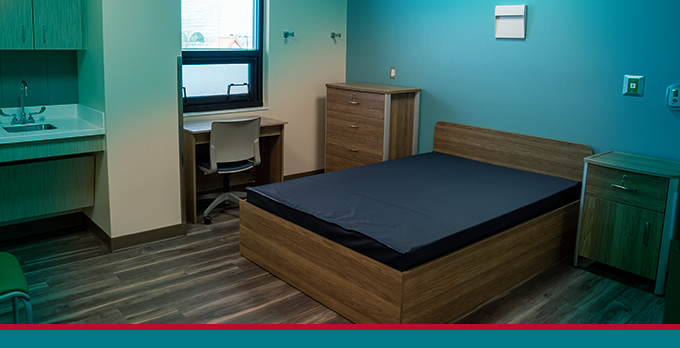When an unsheltered individual is discharged from the hospital following surgery or another major injury or illness, they often find themselves without a safe space to recover. This can force our unsheltered neighbors to recover on the streets, where they face challenges that lead to worsening conditions and rehospitalization.
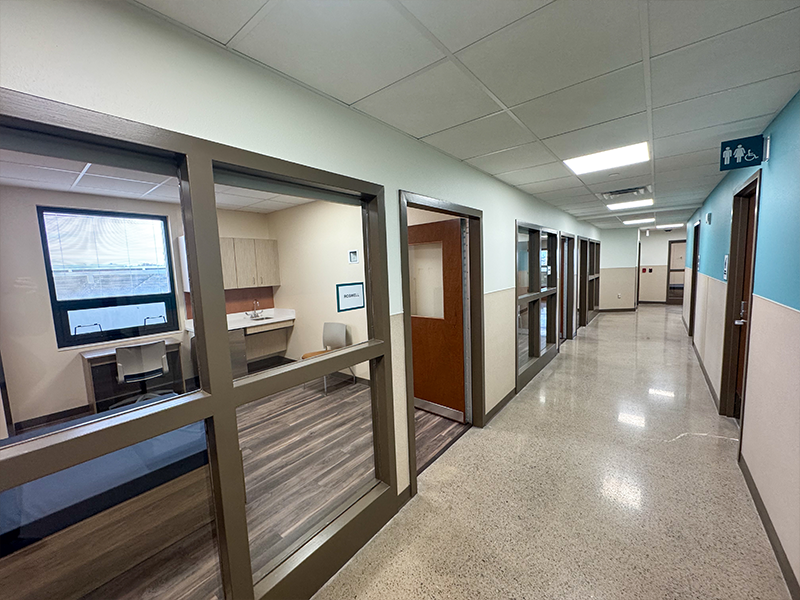 Today, the City of Albuquerque, along with key partners, unveiled the Medical Respite Center at Gateway Center. The 22,500-square-foot center will provide a safe, medically supervised space where people will receive continued treatment and recover from illness or injury. The Medical Respite Center is expected to welcome clients early this year. Those with lived experience say this will be a transformational resource for our community that offers a pathway for people to get into housing.
Today, the City of Albuquerque, along with key partners, unveiled the Medical Respite Center at Gateway Center. The 22,500-square-foot center will provide a safe, medically supervised space where people will receive continued treatment and recover from illness or injury. The Medical Respite Center is expected to welcome clients early this year. Those with lived experience say this will be a transformational resource for our community that offers a pathway for people to get into housing.
“I understand what it means to be on the street with nowhere to go, and I know that this center will offer more than just medical support—it will offer dignity, safety, and hope, which includes connecting individuals to the resources that will help them to a place of long-term safety that is found in housing,” said Daniel Rowan, Sr. Program Manager at UNM Project ECHO and Albuquerque Health Care for the Homeless Board Member. “This center reflects our shared belief that everyone deserves the chance to recover and rebuild. Having the right resources at the right time and place is vital, which is exactly what medical respite does.”
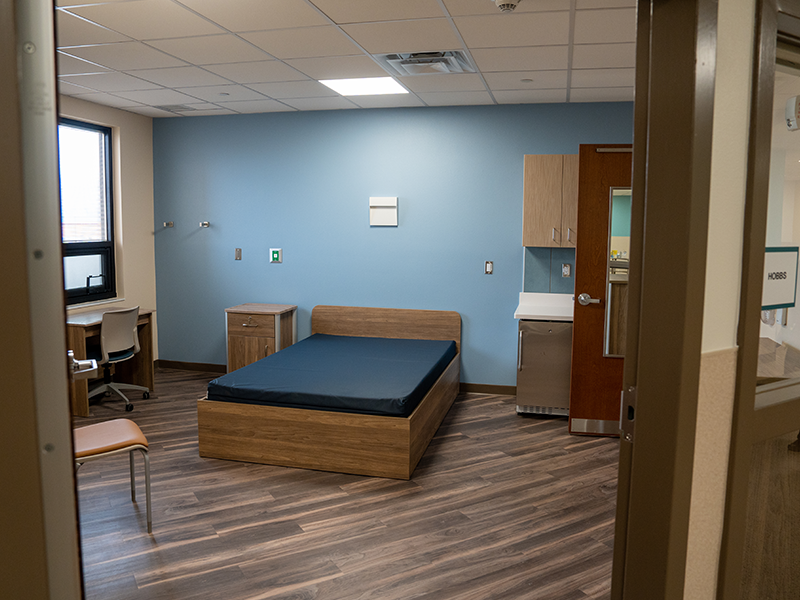 “Everyone deserves a safe and supportive environment to heal, and the new Medical Respite Center will fill this crucial service gap and free up space in our hospitals,” said Albuquerque Mayor Tim Keller. “The completion of the Respite Center is another piece of the puzzle to create a system of care that meets the unique needs of our unsheltered community.”
“Everyone deserves a safe and supportive environment to heal, and the new Medical Respite Center will fill this crucial service gap and free up space in our hospitals,” said Albuquerque Mayor Tim Keller. “The completion of the Respite Center is another piece of the puzzle to create a system of care that meets the unique needs of our unsheltered community.”
A report by Albuquerque Health Care for the Homeless highlights the need for medical respite. It cites data from the National Health Care for the Homeless Council that states readmission to the hospital is two times higher for individuals who are homeless. It also reveals that patients experiencing homelessness stay about four days longer per admission than other low-income patients.
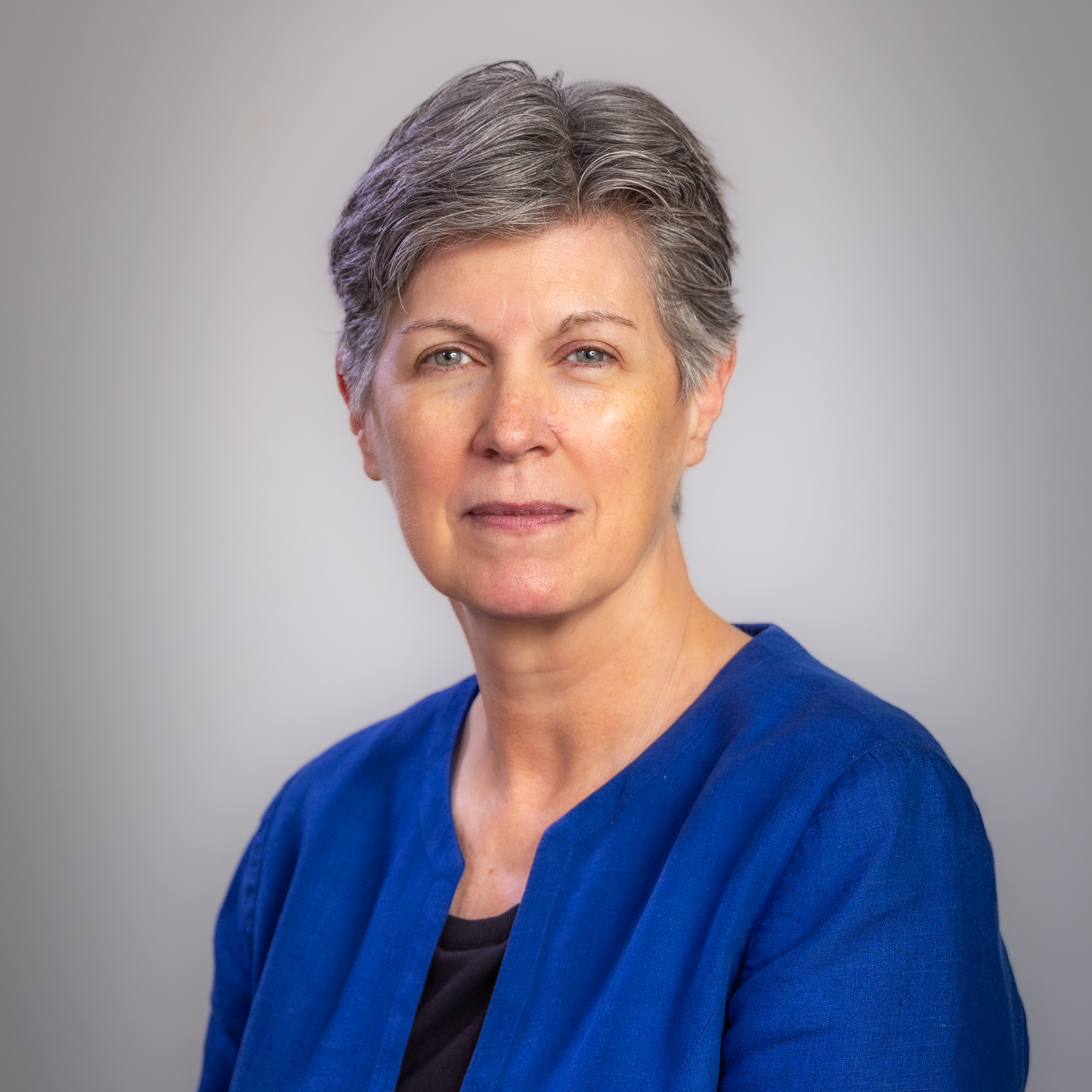
For most people after a hospital stay, they can go home to rest and recover. But for those without reliable housing, they often don’t have a safe place to heal- until now. Our teams will coordinate transitions so that our unhoused patients find their way here for their respite care. Our providers will ensure the Medical Respite Care team has specific discharge instructions for each patient for a seamless continuity of care. That includes pharmacy instructions, follow up appointments, and wound care, if needed.
Recent homeless mortality data underscores this urgent need for medical respite care – people who are unhoused die 20 years earlier than housed people and have 60% greater mortality risk than other low-income individuals.
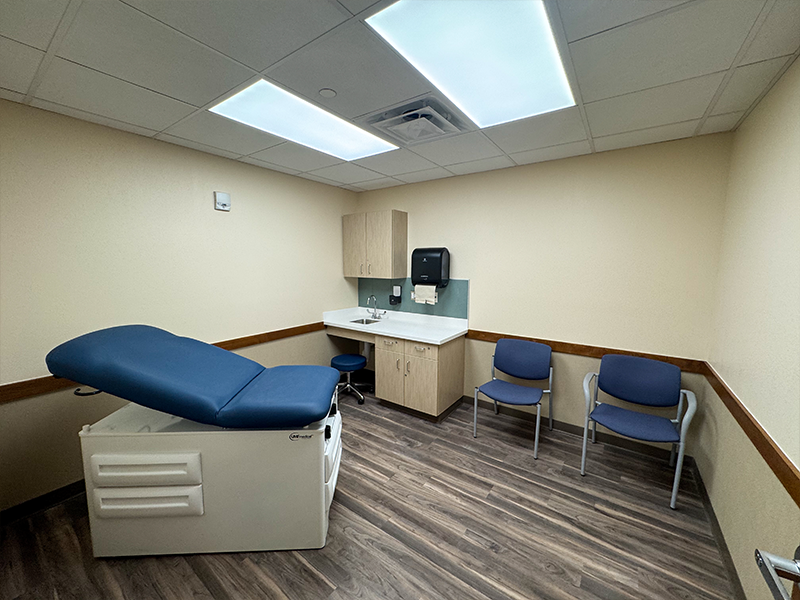
“Recovering from illness or injury is often a barrier for unsheltered individuals,” said Gilbert Ramirez, City of Albuquerque Health, Housing and Homelessness Director. “Medical respite will be a transformational new service that provides an appropriate response to help the most vulnerable in our community while also offering another pathway to housing within our Gateway Network.”
The Medical Respite Center will operate through the Medical Respite Collaborative. UNM Hospital, Albuquerque Health Care for the Homeless, and First Nations Community Healthsource will refer patients to the Medical Respite Center. The Medical Respite Center will operate around the clock and is comprised of 50 beds in individual and shared rooms. Patients will stay, on average, 45 to 60 days. In its first year, the Medical Respite Center will serve an estimated 400 individuals.
“Following an eight-year planning process led by Albuquerque Health Care for the Homeless, which included a robust needs assessment, a national technical assistance convening, and an independent evaluation workgroup, the Albuquerque Medical Respite Collaborative is well positioned to launch comprehensive services, and we are thrilled to see this ambitious project come to fruition,” said Jennifer Metzler, CEO of Albuquerque Health Care for the Homeless.
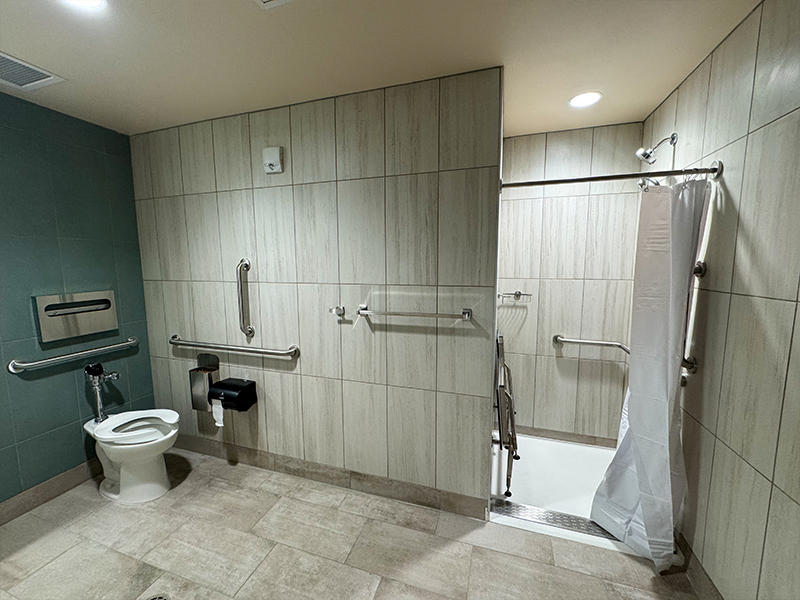
Heading Home has been selected as the operator of the Medical Respite Center through a competitive RFP process. Albuquerque Health Care for the Homeless will be the lead medical respite provider and oversee integrated health care, public benefits enrollment, exit to housing, and coordination with specialty care. First Nations will provide medical care to patients. UNM Hospital will lead the referrals ensuring continuity of care.
The City has allocated $900k in Housing Voucher funding for the Medical Respite Program. Albuquerque Health Care for the Homeless will distribute vouchers using this funding and will also navigate patients to other affordable housing resources as appropriate. Patients will also have access to physical therapy and other specialty care with a goal of connection to a permanent primary care provider.
